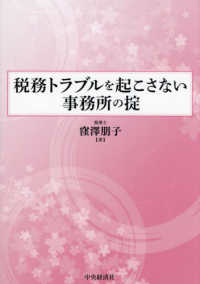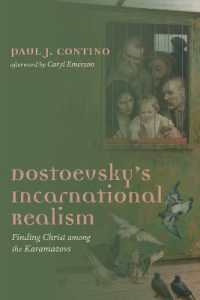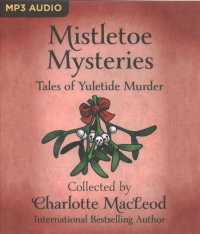- ホーム
- > 洋書
- > 英文書
- > Literary Criticism
Full Description
Borrowing its title from Oscar Wilde's essay "The Decay of Lying," this study engages questions of fraudulent authorship in the literary afterlife of Oscar Wilde. The unique cultural moment of Wilde's early-twentieth-century afterlife, Gregory Mackie argues, afforded a space for marginal and transgressive forms of literary production that, ironically enough, Wilde himself would have endorsed. Beautiful Untrue Things recovers the careers of several forgers who successfully inhabited the persona of the Victorian era's most infamous homosexual and arguably its most successful dramatist.
More broadly, this study tells a larger story about Oscar Wilde's continued cultural impact at a moment when he had fallen out of favour with the literary establishment. It probes the activities of a series of eccentric and often outrageous figures who inhabited Oscar Wilde's much-mythologized authorial persona - in forging him, they effectively wrote as Wilde - in order to argue that literary forgery can be reimagined as a form of performance. But to forge Wilde and generate "beautiful untrue things" in his name is not only an exercise in role-playing - it is also crucially a form of imaginative world-making, resembling what we describe today as fan fiction.
Contents
List of Illustrations
Acknowledgements
Introduction: The Truth of Fakes
1. The Importance of Being Authentic
2. The Picture of Dorian Hope
3. Pen, Pencil, and Planchette
4. The Devoted Fraud
Conclusion: The Teacher of Fandom
Notes
Bibliography








